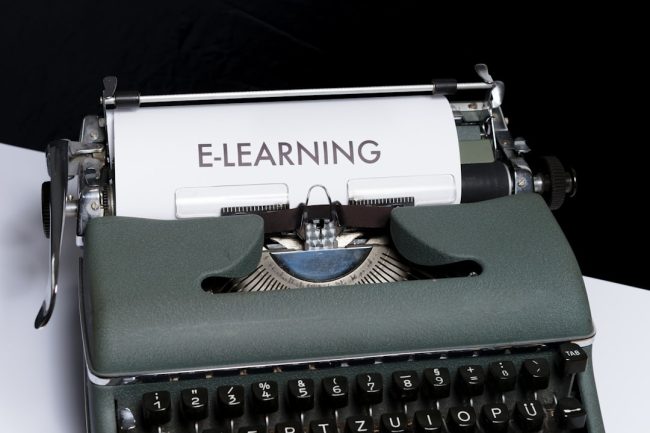The Rise of AI-Powered Training Platforms The introduction of artificial intelligence (AI) has significantly changed the field of education and professional development in recent years. The emergence of AI-driven training platforms has completely changed the way we think about education, making it more efficient, accessible, and individualized. These platforms use sophisticated algorithms & data analytics to build dynamic learning environments that change based on each learner’s particular needs. As we learn more about this phenomenon, it becomes evident that AI is a driving force behind a new era of individualized education rather than merely a tool for automation. A number of factors have contributed to the growth of AI-powered training platforms.
Above all, the need for creative solutions has arisen due to the growing demand for ongoing education in a job market that is changing quickly. Disengagement and ineffective results are frequently the result of traditional training methods’ failure to meet the varied needs of learners. These platforms can create individualized training experiences by using AI to analyze large volumes of data and find knowledge gaps, learning preferences, and styles. This trend toward personalization signifies a fundamental shift in how we view and interact with education, not just a passing fad. Comprehending Personalized Learning Paths It is crucial to acknowledge that the idea of personalized learning paths is based on the knowledge that every learner is different.
Personalized learning paths are educational experiences that are specifically created to satisfy each learner’s needs, interests, and objectives. Personalized learning paths, in contrast to conventional one-size-fits-all training programs, let us advance at our own speed, concentrating on our areas of weakness while ignoring material we have already mastered. A thorough evaluation of our knowledge and abilities is necessary before implementing personalized learning paths. AI-powered platforms are able to generate a comprehensive profile for every learner through diagnostic tests and continuous assessments.
The basis for creating a tailored curriculum that fits our learning preferences and career goals is this profile. We can take charge of our educational journey by using personalized learning paths that consider our strengths and weaknesses, which encourages motivation and a sense of agency. The Function of Artificial Intelligence in Customizing Learning Artificial intelligence is essential to customizing learning experiences. Large volumes of data can be processed by AI using machine learning algorithms and data analytics to find patterns & trends in our learning habits. AI-powered training platforms can now provide engaging and pertinent content thanks to this capability.
For example, the platform can suggest additional materials or different explanations to help us grasp a concept if we find it difficult. Also, AI is capable of real-time adaptation in response to our interactions with the platform. Our performance & engagement levels are continuously assessed by the system as we move through our customized learning path. The platform may change the level of difficulty or introduce more complex subjects if we show that we are proficient in particular areas.
On the other hand, if we run into difficulties, it can offer more assistance or go over basic ideas again. Our learning process is kept in line with our changing needs thanks to this dynamic adaptability. Personalized learning paths offer numerous advantages that go beyond improved academic performance. Enhanced engagement is among the most important benefits.
We are more likely to stay inspired and involved in our educational journey when we are shown content that speaks to our interests and supports our professional objectives. Increased retention rates and a deeper comprehension of the subject matter are frequently the results of this increased engagement. Personalized learning paths also promote empowerment and self-reliance.
These avenues support self-directed learning by giving us the ability to direct our own educational journeys. Instead of being passive consumers of information, we start to actively participate in our own development. This change not only boosts our self-esteem but also develops critical thinking and problem-solving abilities, which are crucial in the fast-paced workplace of today.
Problems and Restrictions of AI-Powered Training Platforms We must recognize the problems and restrictions that AI-powered training platforms bring, even with their many benefits. The possibility of bias in AI algorithms is a major worry. Recommendations that are distorted and do not fairly represent our needs or capabilities may result from the use of non-representative or biased data to train these systems. This problem emphasizes how crucial it is to make sure that the data sets used to create AI models are inclusive and diverse.
The dependence on technology presents another difficulty. AI can improve the educational process, but it cannot take the place of people, who are frequently essential to successful instruction. Throughout our educational journeys, the guidance, support, and encouragement that instructors and mentors provide are still crucial.
In order to guarantee that we receive a comprehensive educational experience, it is imperative that technology and human interaction be balanced. Personalized learning path implementation in the workplace is becoming more and more important as businesses realize the benefits of these approaches. Organizations must first evaluate their unique needs and goals in order to successfully incorporate AI-powered training platforms into corporate training initiatives.
This entails figuring out how individualized learning can help them overcome skill gaps in their workforce. Organizations can choose suitable AI-powered platforms that complement their training goals after the goals have been set. Participating in this process with employees is essential because their opinions can reveal important information about their preferences & learning styles. Businesses may establish an atmosphere where customized learning pathways flourish by encouraging teamwork and candid communication. In order to guarantee that the training programs continue to be applicable and efficient over time, it is also necessary to set up continuous evaluation and feedback systems.
Future Directions in AI-Powered Training Platforms There are a number of fascinating developments in the field of AI-powered training platforms that we can expect to see in the near future. A noteworthy development is the growing incorporation of augmented reality (AR) and virtual reality (VR) technologies into customized educational programs. We may be able to practice skills in realistic settings with the help of these immersive technologies, which have the potential to produce incredibly captivating simulations. For example, doctors could practice their surgical skills using virtual reality simulations without endangering patients. Another trend is the increased focus on lifelong learning as a fundamental aspect of professional growth.
As industries continue to change at a never-before-seen rate, businesses will place a higher priority on their employees’ ongoing education. This transition will be made possible in large part by AI-powered training platforms, which offer on-demand access to tailored learning materials that complement new developments in technology and trends. Ethical Issues in AI-Powered Personalized Learning As we welcome the possibilities of AI-powered training platforms, it is critical to address the ethical issues raised by this new technology.
Data security & privacy are two major issues. Although gathering and analyzing personal data is essential to developing individualized learning experiences, it also raises concerns about the storage, use, and security of that data. To protect student information, organizations need to prioritize transparency & implement strong data governance policies. The effects of algorithmic decision-making in education must also be taken into account.
There is a chance that AI systems could unintentionally reinforce preexisting biases or restrict opportunities for particular people as they become more independent in deciding our learning paths. It is imperative that developers and organizations give fairness and inclusivity top priority in their algorithms while closely observing how they affect a variety of learner populations in order to reduce this risk. In summary, we are at the vanguard of a revolutionary shift in education as we traverse the rapidly changing terrain of AI-powered training platforms. We can design more effective, inclusive, and engaging learning experiences by utilizing artificial intelligence and comprehending personalized learning paths.
As we work to create a future where education is genuinely tailored for every student, it is crucial that we continue to be aware of the difficulties and moral dilemmas raised by this technology.
One related article to How AI-Powered Training Platforms Can Personalize Learning Paths is the success story of Product Training for Road Systems Inc. by Designing Digitally. This case study highlights how the MFLEAT training program helped Road Systems Inc. improve their product training process using innovative digital solutions. To learn more about this successful implementation, you can read the full article here.













